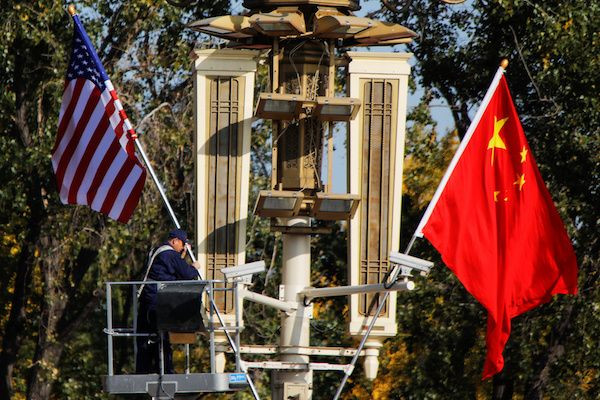What Is ‘Made In China 2025’? Policy Could Trigger US Trade War

A trade war between the U.S. and China is likely to unfold due to the latter’s industrial policy blueprint that seeks to position the Land of the Dragon on top of the technological industry. In 2015, Chinese leaders unveiled the “Made in China 2025” initiative, and the U.S. has since feel threatened by what the Asian country is planning to do.
To better understand the present tension between the U.S. and China, one should first have a good grasp of China’s controversial policy. “Made in China 2025” basically lays out China’s plan to upgrade its manufacturing base in 10 strategic sectors to ensure economic growth.
The guiding principles of the policy focus on how China can transform its manufacturing industry into one that is driven by innovation, prioritizes quality over quantity, nurtures human talent and achieves green development, among others. On the whole, it aims to upgrade the Chinese industry by making it more efficient, as per Nikkei Asian Review.
As indicated in the policy, China is looking to improve and significantly upgrade sectors pertaining to robotics, semiconductors, new energy vehicles, aviation and others. The country also wants its aerospace equipment and telecommunications equipment manufacturing industries to be 70 percent self-sufficient in terms of core components and basic materials.
It’s also worth noting that the technological independence China aspires to have could reduce room for U.S. interference and make the country less vulnerable to economic sanctions, as pointed out by Fujitsu Research Institute economist Jianmin Jin.
Chinese leaders came up with “Made in China 2025” at a time when the country was struggling to improve its industry. “A declining labor force, rising wages and skill bottlenecks have been already eroding China’s competitiveness since the turn of the century,” East-West Center senior fellow Dieter Ernst told EE Times last year. “International trade — a primary source of China’s rise — has fallen to its lowest level since 2009.”
Ernst explained that the initiative came to be after China realized that its investment-driven “Global Factory” model based on low-wage production was no longer enough to provide it with long-term economic growth and prosperity.
All things stipulated in the policy is for the good of China. However, the U.S. government fears that the country’s means to an end isn’t as meritorious. The Office of the U.S. Trade Representative published a 200-page report on March 22 to reveal in detail China’s alleged unfair trade practices.
Experts are also concerned that what China is trying to do through its “Made in China 2025” initiative is to take over as leader in the industries it highlighted in the policy. For instance, China wants to lead the industry of robotics, which is expected to drive economic growth in the 21st century.
If China were to successfully dominate the technological world, the U.S. could suffer the consequences. So in response and as a precautionary measure, the administration of U.S. President Donald Trump announced a range of tariffs on Chinese goods on Wednesday, claiming that China is stealing U.S. intellectual property, CNNMoney reports.
The Trump admin announced the new tariffs to not only reduce the trade deficit, but also to hamper the Chinese government’s “Made in China 2025” blueprint from reaching fruition. However, the move may have already triggered the start of a trade war. Hours after the announcement of the U.S. government’s new tariffs on Chinese goods, China responded with its own tariffs on U.S. goods.
Nevertheless, economists maintain that there isn’t a trade war between the U.S. and China as of the moment. "What happened so far is what typically happens — we do something, they do something back more or less equivalent, then we glare at each other," Center for Strategic and International Studies senior adviser Bill Reinsch said. "The war starts if they do something in excess of what we've done, or if we counter-retaliate to what we've done."
© Copyright IBTimes 2025. All rights reserved.



















